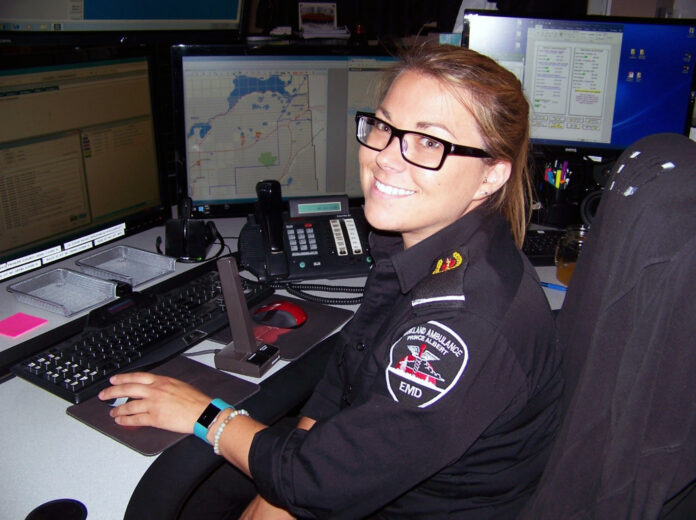
Be clear, be precise and be attentive.
That’s the message Parkland Ambulance is trying to get out to residents who call dispatchers during a medical emergency.
With National Telecommunications Week kicking off on Monday, Parkland Ambulance spokesperson Lyle Karasiuk said it’s a good time to recognize the important work dispatchers do during an emergency call. However, the organization is also giving the public tips on how to make those calls more efficient.
“Our telecommunications centre is a busy place,” Karasiuk said on Monday. “Each call is unique and you will be treated, no matter how busy we are, with the utmost care and respect for the needs that you have. That’s number one, but understand, the best thing you can do for us is give accurate directions to where you are.”
Karasiuk said they’ve seen a significant increase in call volume since the start of the COVID-19 outbreak. In 2020, Parkland Ambulance telecommunicators dealt with around 30,000 calls for service. Last week alone, the organization dealt with nearly 900.
With so many calls coming in, and many requiring immediate medical attention, Karasiuk urged residents to be as clear as possible with their directions. That means not only relaying accurate street names, but also giving specific details for entering the building or area where the emergency is taking place.
“If you’re in a large place, send someone to the front door,” he explained. “We had a situation happening with a local business this (Monday) morning, and it was a little bit difficult. They were doing a create job of caring for that person (and) someone forgot to go and say, ’come to this door because it’s way quicker than going through the entire store.’”
Karasiuk said that it’s not uncommon for residents to drive by someone who appears to be in distress, and call paramedics. However, those calls sometimes don’t come until the driver is several blocks away from the incident, and can’t remember precisely where they saw the medical emergency. He said slowing down and getting accurate information can make the response much quicker.
He added that dispatchers are trained to be calm, reassuring and persistent. If callers become overwhelmed, he explained, they can always rely on Parkland Ambulance’s telecommunications staff to help.
“They are going to do their very best to keep you calm and reassured, and to help you, and that’s so important to our paramedics responding,” Karasiuk said. “If you follow their instructions, they can make a world of difference for you right over the phone.”
National Telecommunications Week runs from April 11-17.

